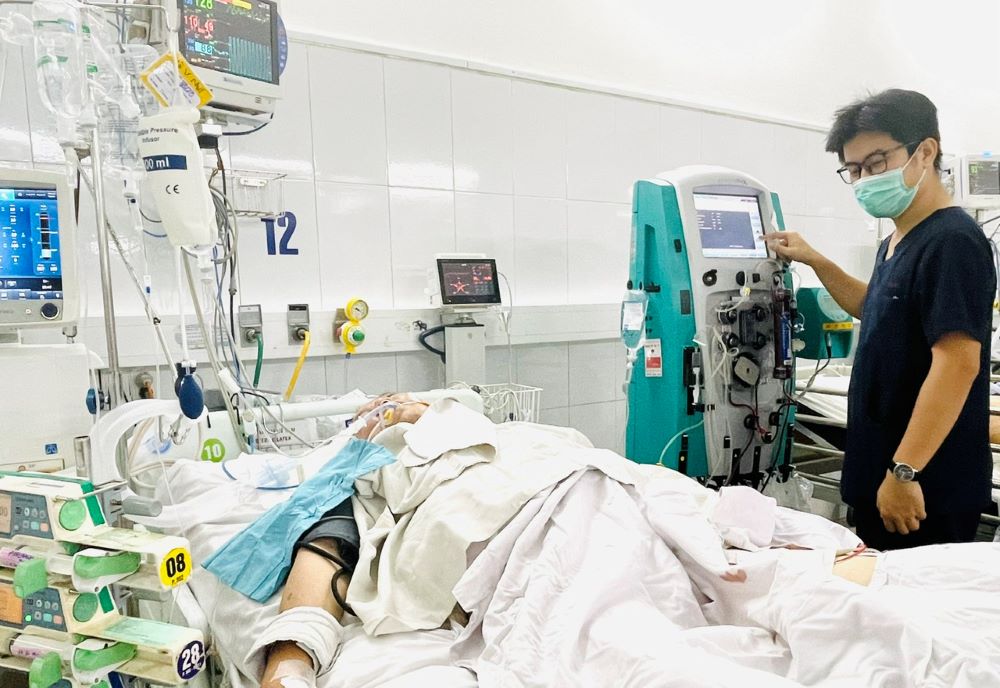Recently, the Intensive Care - Anti-Poison Department, Da Nang Hospital, has received an average of 4-5 cases of snake bites per day. Cases of hospitalization with different levels of damage, from mild swelling to necrosis of the bite. All patients were treated promptly, have now stabilized and have been discharged from the hospital.
According to Dr. Hoang Huu Hieu - Deputy Head of the Intensive Care - Anti-Poison Department, Da Nang Hospital, after the flood, the humid environment caused the snake to leave the cave, find a dry place, and easily come into contact with humans and animals. This is the time when the risk of snake bites increases, especially in rural areas, near rivers and streams. The snake is often hidden in piles of wood, straw, scrap or following floodwaters into the house. People who clean, harvest or travel at night may be suddenly attacked by snake.
Popular venom species in the Central region include red-tailed hyena, tiger snake carrying dirt, niac snake and student snake (fire snake). Their venom can cause severe bleeding, skin and muscle necrosis, respiratory paralysis, and even death if not treated promptly.
Doctor Hieu recommends that when bitten by a snake, the victim should stay calm, lie still, and limit movement to avoid the toxin spreading quickly. Absolutely do not choke, do not wish, smoke or cover with medicinal leaves because it can easily cause infection and necrosis. People should gently wash with clean water, light bandages, fix the bitten limbs lower than the heart, then quickly take them to the nearest medical facility. If possible, remember or take a photo of the snake's shape for the doctor to identify, helping to choose the right serum.
To prevent snake bites, people should keep their home environment clean and clean, and keep their homes dry. When working outdoors or cleaning after floods, wear long clothes, boots, and gloves; do not put your hands and feet in caves, piles of firewood, straws or dark areas. When traveling at night, you should bring a flashlight to observe the route. If you find snake in the house, keep a safe distance, do not arrest or kill the snake yourself, you need to contact a professional person to handle it.

During this flood, the hospital admitted patient N.T.L (born in 1993) to the hospital on October 31 in a state of multiple organ failure and severe blood clotting disorder after catching a red-old snake and biting it. Thanks to doctors from the Department of Intensive Care - Anti-Poisoning of Da Nang Hospital's timely huyetosal replacement and intensive treatment, the patient was out of danger.
Doctor Hieu emphasized that venomous snake bites are dangerous medical accidents, which often occur after the rainy season. People need to proactively prevent and handle it properly to protect their lives and health.












